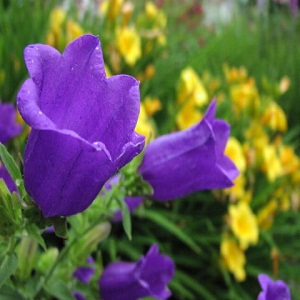How to Grow Canterbury Bells

The Canterbury bells are a beautiful sight when in bloom. They have this particular name due to their distinct bell like shape that resembles a cup and saucer. Canterbury bells come inlovely colors like shades of pink, white, purple and blue. They can be grown in a yard and give the feeling of an old English cottage garden. The flower is a biennial and has a very limited flowering life; however, the effort is certainly worth it.
Growing Canterbury bells is really easy and the flowers bloom in just one year.
Things Required:
– Compost Makers
– Fertilizers
– Garden Spades
– Garden Trowels
– Seeds
– Sphagnum Peat Moss
– Watering Cans
Instructions
-
1
You can grow the Canterbury bells from both seedlings and seeds.
The seeds take longer time than the seedlings. However, they are cost effective as most people store the seeds of their old bells and re-plant them for new flowers.
You can also get either of these from your local nursery.
The optimum time to start is the advent of spring. -
2
Prepare pots for the seedlings and fill the pots with peat moss. Moisten the soil and plant the seedlings. Keep the pots indoors.
You should ideally start indoors 6-8 weeks before the last frost of your area will be over.
If you are from a cold region, keep the seedlings in nursery. -
3
After the frost is over, it is time to transplant the seedlings outside. Prepare ground for them by turning over soil and loosening it. Mix in some peat moss with soil for better growth. Mix in compost into the top layer for fertility and water retention.
Make sure that the area you chose to grow Canterbury bells get plenty of sunlight as the flower demands for full light conditions. -
4
Water the soil and plant the seedlings. Keep the soil moist because Canterbury is very particular about water nourishment.
The flower is very less demanding as long as you provide it with ample sunlight and water. -
5
Fertilizing after every couple of months will make sure that the bells have a robust growth. When the first frost has passed, pull up the plants. You can store the seeds for future plantations in air-tight jars so that you do not have to buy them again from the nursery.




